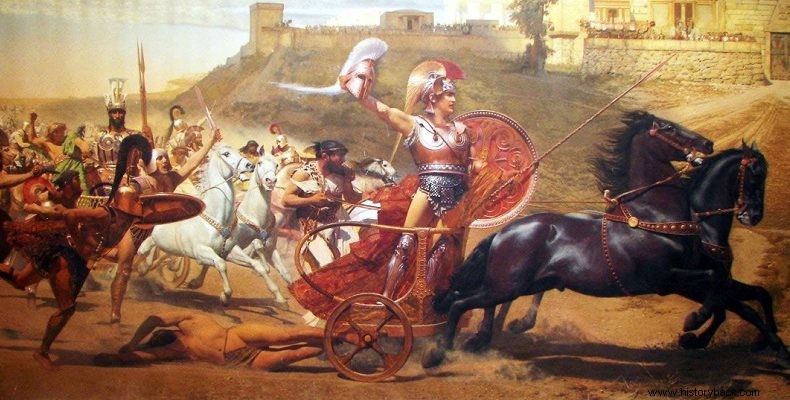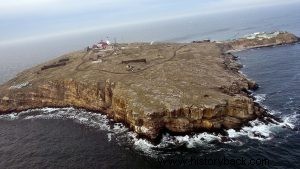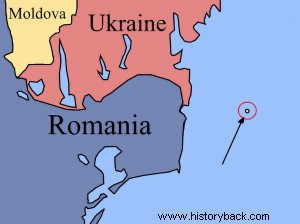
Fidonisi, "Snake Island" officially, is a small island in the Black Sea at a distance of about 35 km from the coast, at the mouth of the Danube River. The island today belongs to Ukraine but has been occupied by the Russians. However, things were not always like this.
In ancient times the island was called Lefki by the Greeks either because of the white marble that is there, or because of the color of the snakes that lived there. Arrian writes that it was named so because this was its color from afar. The version about the color of the snakes is mentioned by Dionysios the Traveller. Stefanos Byzantios mentions the island as "Achilles' Island" because after the hero's death in Troy, his mother moved his remains there, establishing a sanctuary. He also carried the body of Patroklos with him.
A sanctuary of Achilles existed there for many years. The Roman historian of the 3rd c. A.D. mentioned the presence of a sanctuary on the island. Pilgrims reported the spectral presence of the two heroes on the island and left their offerings there. The Roman historian Pliny the Elder wrote that the hero's tomb was on the island.
According to Greek mythology the island was created to help sailors to have an anchorage in the difficult Black Sea. One of the poets of the Trojan Cycle, Arktinus Milesios, confirmed the information that the tombs of Achilles and Patroklos were on the island. Of course there are also a number of other legends about the island, Achilles and other heroes of the Homeric Epic.
In 1823, ruins of an ancient temple were discovered - apparently that of Achilles - on which, however, the Russian owners of the island at the time built a lighthouse, destroying it. References to the island also exist in other ancient authors, such as the geographer Strabo, Ptolemy and the Roman Ovid. Several ancient inscriptions have been found on the island, including an inscription from the 4th century BC, which speaks of a victory against pirates who had taken over the island. A fragment signed by the famous ancient painter Epictetus and the potter Nikosthenes was also found on the island.


